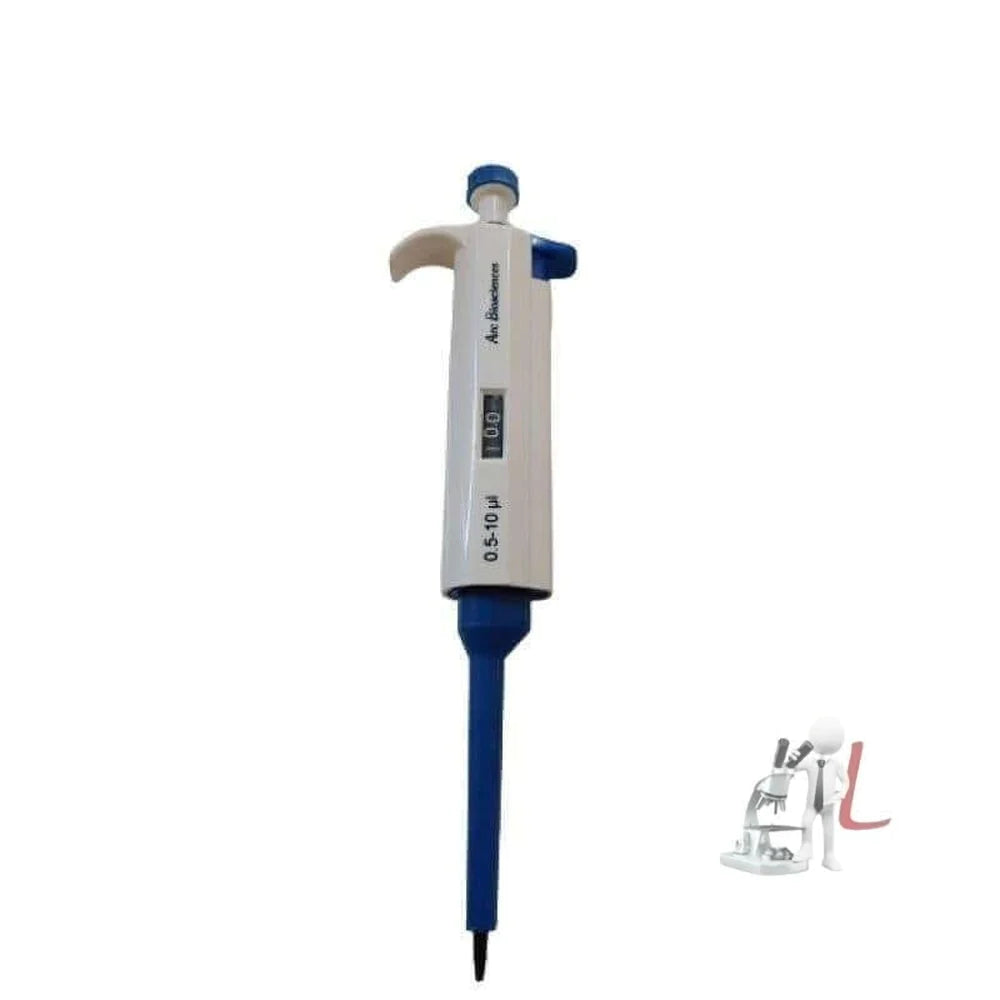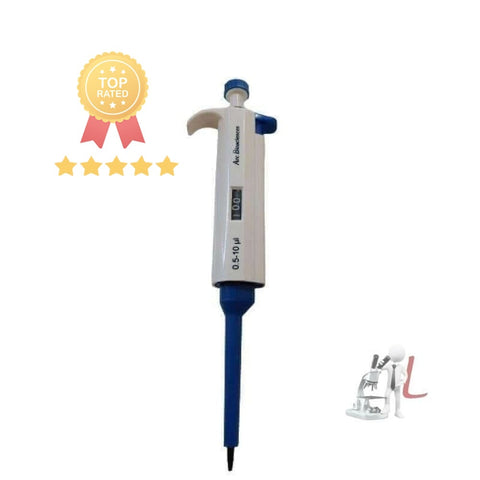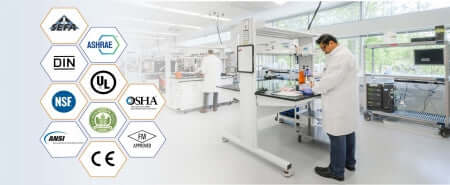Categories
- 10 Best Bod Incubator in 2023
- 10 Best compound microscopes in 2023
- 10 Best Lab chemicals in 2023
- 10 Best Lab equipment suppliers in 2023
- 10 Best lab microscopes in 2023
- 10 Best Microbiology Lab Equipment in 2023
- 10 Best student microscopes In 2023 Lowest Price
- 10 Best vertical autoclaves in 2023
- Accessories
- Aerospace Engineering lab Equipment
- Agriculture College Lab Equipment Suppliers
- agriculture Lab Equipment
- Agronomy Lab Equipment
- analytical lab Equipment
- Anatomy lab equipment
- Animal House lab Equipment
- AUTOMOBILE LAB
- ayurvedic drug testing laboratory
- ayurvedic pharmacy instruments
- B pharmacy Equipments suppliers
- B. D. Instrumentation (India)
- Binocular Microscope
- Biochemistry lab equipment
- Biological Lab Equipment
- Biological Sciences lab Equipment
- Biomedical Engineering Lab Equipment
- Biophysics lab equipment
- Biostatistics Lab Equipment
- Biotechnology
- Biotechnology lab equipment
- Biotechnology lab equipment
- Borolab Scientific Glass Pvt. Ltd.
- Botany Lab Product
- BOTANY PERMANENT MICRO-PREPARED SLIDES
- CAD LAB
- Cardiology Lab Equipment
- Central Drug House (P) Ltd - CDH
- CENTRAL WORKSHOP
- Centre for Community Medicine lab equipment
- Centrifuge machine
- centrifuge machine suppliers in india
- Chemical Engineering Equipment
- Chemistry equipment
- Chemistry Lab Apparatus
- Chromatography Apparatus
- Civil Engineering
- Clean Air Equipment
- College of Nursing Lab Equipment
- D Pharmacy equipment
- Dairy lab instrument
- dental autoclave price
- Dental Equipment
- Department Of Anatomy Lab Equipment
- DEPARTMENT OF P'CEUTICAL CHEMISTRY Equipment
- DEPARTMENT OF P'CEUTICS Equipment
- DEPARTMENT OF PHARMACOGNOSY Equipment
- DEPARTMENT OF PHARMACOLOGY Equipment
- Diffusion Cell Apparatus
- Digital Centrifuge Machine
- Distillation apparatus
- Do meter
- DYNAMICS OF MACHINES LAB
- EDM LAB equipment
- Endocrinology, Metabolism & Diabetes Lab Equipment
- Engineering Institute laboratory Equipment
- Engineering Laboratory Equipment
- ENT AND OPHTHALMIC
- Entomology Lab equipment
- equipment for laboratory
- Flash Point Apparatus
- FLUID MECHANICS AND MACHINERY FLUID LAB
- FMS LAB
- Gastroenterology and Human Nutrition
- General Laboratory Equipment
- General Laboratory Equipment
- Genetics and Plant Breeding lab Equipment
- Genetics and Plant Breeding lab Equipment
- Haematology Lab Equipment
- Handi Centrifuge Machine
- Heart Models
- HEAT & MASS TRANSFER LAB
- Heating & Cooling Products
- herbal testing laboratory
- Hospital equipment
- Hospital equipment supplier near me
- Human Body Part Models
- Human Skeleton Model White PVC Plastic
- I.C. ENGINE LAB
- Industrial & Soil Equipment
- Kashmir Surgical Works
- Knee Joint Model
- Lab Chemical
- lab equipment
- Lab Fabric items
- lab plasticware
- lab water bath
- Laboratory Centrifuge
- Laboratory Consumables
- Laboratory equipment
- laboratory equipment
- Laboratory equipment manufacturers and suppliers
- Laboratory equipment suppliers in ambala cantt
- Laboratory equipment suppliers in Delhi
- Laboratory equipment suppliers in India
- Laboratory Equipment Suppliers in Jaipur
- Laboratory glassware & Chemical Items
- laboratory instruments manufacturers in ambala cantt
- Labpro banner
- Labpro Banner 60%
- Labpro international
- Live Stock & Production Management lab Equipment
- Livestock & Production Management
- MATERIAL SCIENCE LAB
- MEASUREMENT & METROLOGY LAB
- measuring tools
- Mechanical Engineering
- Medical laboratory equipment suppliers
- medical mannequin
- medical products
- Mega Offers
- Melting Point Apparatus
- Metrological Lab Equipment
- Microbiological Diagnostic Equipment
- Microbiology & Pharmacology Laboratory Equipment
- Microbiology laboratory equipment
- Microcentrifuge
- Micrometer
- Micropipettes
- microscopes
- Milk Testing Equipment
- mushroom lab Equipment
- Nephrology lab equipment
- Nursing College Lab Equipment
- Nursing Department lab equipment
- Obstetrics and Gynaecology lab equipment
- Offer Zone
- Orthopaedics lab equipment
- OSAW INDUSTRIAL PRODUCTS PVT LTD
- Otorhinolaryngology lab equipment
- Paediatrics lab equipment
- Pathology lab equipment
- Pediatric lab equipment
- PERMANENT SLIDES
- Pharma Analysis Laboratory Equipment
- Pharma Biology Laboratory Equipment
- PHARMACEUTICAL BIOTECHNOLOGY EQUIPMENT
- Pharmaceutical Chemistry Lab Equipment
- Pharmaceutical lab equipment & Research Lab Equipment
- Pharmaceutics Laboratory Equipment
- Pharmacognosy Laboratory Equipment
- Pharmacology lab equipment
- Pharmacy college lab equipment suppliers
- Pharmacy laboratories equipment
- Physical Pharmacy Lab equipment
- physics 60% Discount
- physics lab
- Physiology lab equipment
- Plant Pathology & Microbiology Lab
- product Offers 2023
- Profile Projectors
- Pusher Centrifuge
- RADICAL SCIENTIFIC EQUIPMENTS PVT LTD
- REFRIGERATION & AIR CONDITIONING LAB
- Reproductive Biology lab equipment
- Research Section lab equipment
- Rheumatology lab equipment
- Rheumatology lab equipment
- School And College University equipment
- School And College University Products
- school lab equipment manufacturers in india
- Science Laboratory Equipment
- Scifa Laboratory equipment lnc
- SCITECH SCIENTIFICS
- Seed Technology
- Seed Technology Lab Equipment
- Silica Gel
- Skull Models
- soil testing instruments
- soil testing lab equipment list
- Soxhlet Extraction Apparatus
- SPAN AUTOMATION
- STRENGTH OF MATERIALS LAB
- Table Top Centrifuge
- Testing Equipment
- Tiles Ceramic Laboratory Equipment
- Top manufacturers Laboratory fume hood in india
- types of mask
- Types of Microscopes
- Urology lab equipment
- Veterinary Sciences Lab Product
- Zoology Lab Equipment
Recent Articles
-
physics lab equipment 2024 February 04, 2024
-
How to use a Micropipette November 26, 2023
-
10 Top Uses for Water Baths August 24, 2023
Tag Cloud
Top Sellers
micropipette uses in laboratory

Introduction: Micropipettes are a crucial tool in laboratories for accurate and precise liquid handling. These devices are used to measure and transfer small volumes of liquid, ranging from microliters to milliliters. In this blog, we will discuss the various uses of micropipettes in laboratories.
Uses of Micropipettes in Laboratories:
-
DNA and RNA Extraction: Micropipettes are used in DNA and RNA extraction processes. The pipettes are used to add the reagents and enzymes required for the extraction process. The use of micropipettes ensures that the right amount of reagents is added, leading to a successful extraction.
-
PCR Amplification: Polymerase Chain Reaction (PCR) is a technique used to amplify DNA. Micropipettes are used to add the PCR components, including DNA template, primers, Taq polymerase, and buffer. The use of micropipettes ensures that the right amount of each component is added, leading to a successful amplification.
-
Protein Crystallization: Micropipettes are used in protein crystallization, where the protein solution is mixed with the crystallization solution. The pipettes are used to dispense the protein solution and the crystallization solution accurately.
-
Enzyme Assays: Micropipettes are used in enzyme assays to add the substrate and the enzyme to the reaction mixture accurately. The pipettes are also used to dispense the stop solution to terminate the reaction.
-
Cell Culture: Micropipettes are used in cell culture to add the culture medium and the cells to the culture plates accurately. The use of micropipettes ensures that the right amount of cells and medium are added, leading to successful cell growth.
-
ELISA Assays: Micropipettes are used in ELISA assays to add the reagents, including the primary and secondary antibodies, enzyme conjugates, and substrate, accurately. The use of micropipettes ensures that the right amount of each reagent is added, leading to accurate and reliable results.
Conclusion: In conclusion, micropipettes are a crucial tool in laboratories for precise liquid handling. Their uses in DNA and RNA extraction, PCR amplification, protein crystallization, enzyme assays, cell culture, and ELISA assays are essential to the success of these processes. The use of micropipettes ensures that the right amount of liquid is added, leading to accurate and reliable results. It is, therefore, essential to use high-quality micropipettes in laboratories for successful experiments.

Top Suppliers
Collections
- Dairy products
- Milk Testing Equipment
- physics lab
- Laboratory And Scientific Equi...
- microscopes
- ENT AND OPHTHALMIC
- measuring tools
- Centrifuge machine
- Micrometer
- Micropipette
- Silica Gel
- BOTANY PERMANENT MICRO-PREPARE...
- PERMANENT SLIDES
- centrifuge machine
- mask - type of mask
- medical products
- bod incubator
- Lab Chemical
- Do meter
- Lab Fabric items
- dental Autoclave
- medical mannequin
- White PVC Plastic Human Skelet...
- Human Body Part Models
- Heart Models
- Knee Joint Model
- Skull Models
- Laboratory Centrifuge
- Handi Centrifuges
- Microcentrifuge
- Table Top Centrifuge
- Digital Centrifuge Machine
- Pusher Centrifuge
- Laboratory Consumables
- Melting Point Apparatus
- Soxhlet Extraction Apparatus
- Distilling Apparatus
- Chemistry Lab Apparatus
- Chromatography Apparatus
- Diffusion Cell Apparatus
- Flash Point Apparatus
- Science Laboratory Equipment
- Profile Projectors
- Engineering Laboratory Equipme...
- Types of Microscopes
- General Laboratory Equipment
- Heating & Cooling Products
- Hospital equipment
- Testing Equipment
- Clean Air Equipment
- Engineering & Institute labora...
- HEAT & MASS TRANSFER LAB
- REFRIGERATION & AIR CONDITIONI...
- I.C. ENGINE LAB
- FLUID MECHANICS AND MACHINERY ...
- STRENGTH OF MATERIALS LAB
- EDM LAB equipment
- MATERIAL SCIENCE LAB
- FMS LAB
- CAD LAB
- AUTOMOBILE LAB
- MEASUREMENT & METROLOGY LAB
- DYNAMICS OF MACHINES LAB
- CENTRAL WORKSHOP
- Aerospace Engineering lab Equi...
- Biological Sciences lab Equipm...
- Chemical Engineering Equipment
- Civil Engineering
- Mechanical Engineering
- School And College University ...
- Lab Glassware & Chemical Items
- Zoology Lab Equipment
- Microbiology laboratory equipm...
- Chemistry Lab Products
- Botany Lab Product
- Biological Lab Equipment
- Department Of Anatomy Lab Equi...
- College of Nursing Lab Equipme...
- Endocrinology, Metabolism & Di...
- Haematology Lab Equipment
- Orthopaedics lab equipment
- Pediatric lab equipment
- Pathology lab equipment
- Physiology lab equipment
- Rheumatology lab equipment
- Urology lab equipment
- Obstetrics and Gynaecology lab...
- Otorhinolaryngology lab equipm...
- Pharmacology lab equipment
- Anatomy lab equipment
- Research Section lab equipment
- Pharmaceutical & Research Lab ...
- Physical Pharmacy Lab equipmen...
- Pharma Biology Laboratory Lab ...
- General Laboratory Equipment
- School And College University ...
- Medical College Lab equipment
- Biomedical Engineering Lab Equ...
- Biostatistics Lab Equipment
- Cardiology Lab Equipment
- College of Nursing Lab Equipme...
- Gastroenterology and Human Nut...
- Gastroenterology and Human Nut...
- Nursing Department lab equipme...
- Paediatrics lab equipment
- Reproductive Biology lab equip...
- Rheumatology lab equipment
- Biochemistry lab equipment
- Biophysics lab equipment
- Biotechnology lab equipment
- Centre for Community Medicine ...
- Nephrology lab equipment
- Pharmaceutical Chemistry Lab E...
- Microbiology & Pharmacology La...
- D Pharmacy equipment
- B pharmacy Equipments
- Pharmaceutics Laboratory Equip...
- Pharma Analysis Laboratory Equ...
- Animal House lab Equipment
- Pharmacognosy Laboratory Equip...
- Pharmacy laboratories equipmen...
- DEPARTMENT OF PHARMACOLOGY Equ...
- DEPARTMENT OF PHARMACOGNOSY Eq...
- DEPARTMENT OF P'CEUTICAL CHEMI...
- DEPARTMENT OF P'CEUTICS Equipm...
- PHARMACEUTICAL BIOTECHNOLOGY E...
- Livestock & Production Managem...
- Veterinary Sciences Lab Produc...
- Live Stock & Production Manage...
- Genetics and Plant Breeding la...
- Biotechnology lab equipment
- Seed Technology Lab Equipment
- Genetics and Plant Breeding la...
- Biotechnology
- Seed Technology
- Soil Science & Soil Water Cons...
- Entomology Lab equipment
- Agronomy Lab Equipment
- Metrological Lab Equipment
- Plant Pathology & Microbiology...
- Dental Equipment
- Microbiological Diagnostic Equ...
- Industrial & Soil Equipment
- Accessories
- Mega Offer
- Offer Zone
- Tiles Ceramic Laboratory Equip...
- analytical lab Equipment
- ayurvedic drug testing laborat...
- ayurvedic pharmacy instruments
- herbal testing laboratory
- mushroom lab Equipment
- lab plasticware
- agriculture Lab Equipment
- Agriculture College Lab Equipm...
- Labpro Banner 60%
- Labpro banner
- physics 60% Discount
- Hospital equipment supplier Ne...
Top Suppliers
Blog Posts
- green laser Light...
- Student Stereo Mi...
- Binocular Microsc...
- Laboratory Equipm...
- Prokaryos lab and...
- Pharmacy Lab
- Micro lab Laminar...
- MILK TESTING EQUI...
- Micrometer
- Centrifuge Machin...
- Chemistry Lab Equ...
- Agricultural coll...
- full body sanitiz...
- hydrometer for wi...
- Portable Bottle f...
- Egg Incubator
- Laboratorydeal of...
- A complete list o...
- different types o...
- Uses of Microscop...























